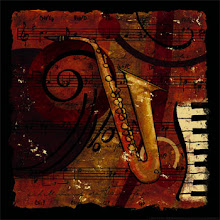Task for November 10th:
Write an essay on the statement 'Most TV programmes are not worth watching'.
Teacher's answer: 9 Good arguments!
Most shows or TV programmes shown in Argentina are very watched and popular. However, most of them aren't worth watching.
First of all, some programmes show full or parcial nudity all the time, which is very repetitive and a bit boring. 'Bailando por un sueño' ['Dancing with the stars'] is a good example of this, for it shows 'accidental' nudity when the female dancers wear tiny pieces of cloth instead of actual outfits. Those kind of shows aren't worth watching and they aren't very interesting either.
As well as this, gossip shows are very embarrassing, because you get to see pseudo famous people angrily quarrelling with each other 24 hours a day, and the hosts try to encourage these fights. The worst is that people watch these shows and even gossip about them, as if they don't have a personal life to worry about.
What these shows try to do is to win more money by showing things people are attracted to: sex, fights, violence, etc, so that people watch them and they get to put more of those shows on TV (indeed, there are, at least, twenty TV gossip shows, and they are very watched).
Nevertheless, not everything on TV is pure garbage, there are some shows that could be 'watchable'. These are a few soap operas, especially the late night ones, such as 'Vidas robadas' ['Stolen lives']. This might be worth watching because it is really intersting, it is about kidnappers and has a deep plot. Other soaps, especially the ones for teenagers, might be shown for two or three years in a row. These are a bit stupid (most of them have stupid plots) and they, too, fight for more audience by showing sex, violence and fights.
Rounding off, there is a lot of sex, violence and fights on Argentinian TV, which attracts people's attention, and, although some late night soaps might be good, most Argentinian TV programmes aren't worth watching.
Note from the author: This was a difficult essay to write, as I had so many opinions on the subject 'TV'. I should say I hate it (which is strange, at my 14 short years of life), and the only programmes I truly enjoy watching are the 'Animal Planet' ones. There are lot's of quotes about tv I like, and several nicknames for it, for example "the dreaded box" (Roald Dahl, "Matilda").
In this case, I should quote, for the second time, Groucho Marx: "I find television very educational. Every time someone switches it on I go into another room and read a good book".
Write an essay on the statement 'Most TV programmes are not worth watching'.
Teacher's answer: 9 Good arguments!
Most shows or TV programmes shown in Argentina are very watched and popular. However, most of them aren't worth watching.
First of all, some programmes show full or parcial nudity all the time, which is very repetitive and a bit boring. 'Bailando por un sueño' ['Dancing with the stars'] is a good example of this, for it shows 'accidental' nudity when the female dancers wear tiny pieces of cloth instead of actual outfits. Those kind of shows aren't worth watching and they aren't very interesting either.
As well as this, gossip shows are very embarrassing, because you get to see pseudo famous people angrily quarrelling with each other 24 hours a day, and the hosts try to encourage these fights. The worst is that people watch these shows and even gossip about them, as if they don't have a personal life to worry about.
What these shows try to do is to win more money by showing things people are attracted to: sex, fights, violence, etc, so that people watch them and they get to put more of those shows on TV (indeed, there are, at least, twenty TV gossip shows, and they are very watched).
Nevertheless, not everything on TV is pure garbage, there are some shows that could be 'watchable'. These are a few soap operas, especially the late night ones, such as 'Vidas robadas' ['Stolen lives']. This might be worth watching because it is really intersting, it is about kidnappers and has a deep plot. Other soaps, especially the ones for teenagers, might be shown for two or three years in a row. These are a bit stupid (most of them have stupid plots) and they, too, fight for more audience by showing sex, violence and fights.
Rounding off, there is a lot of sex, violence and fights on Argentinian TV, which attracts people's attention, and, although some late night soaps might be good, most Argentinian TV programmes aren't worth watching.
Note from the author: This was a difficult essay to write, as I had so many opinions on the subject 'TV'. I should say I hate it (which is strange, at my 14 short years of life), and the only programmes I truly enjoy watching are the 'Animal Planet' ones. There are lot's of quotes about tv I like, and several nicknames for it, for example "the dreaded box" (Roald Dahl, "Matilda").
In this case, I should quote, for the second time, Groucho Marx: "I find television very educational. Every time someone switches it on I go into another room and read a good book".
